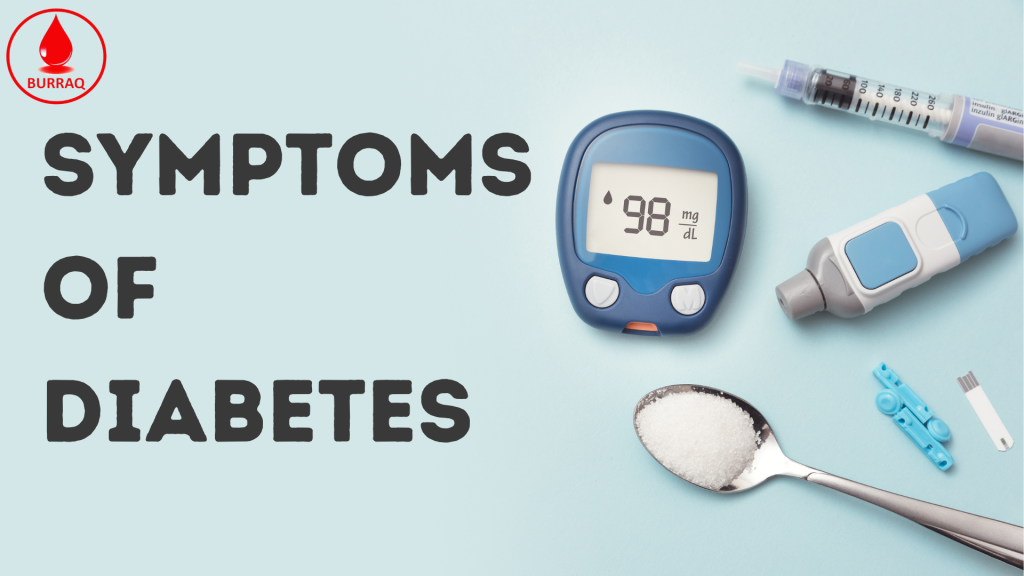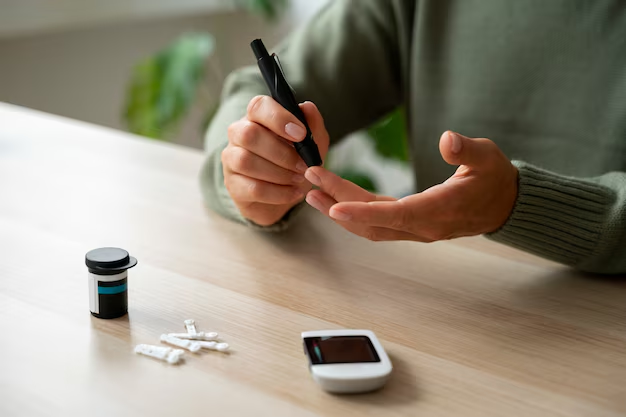 Home
About Us
Treatments
Blogs
Contact Us
Book Appointment
Home
About Us
Treatments
Blogs
Contact Us
Book Appointment
Diabetes is a chronic medical condition that affects how your body turns food into energy. There are several types of diabetes, and it’s important to understand how the disease develops and how it can be managed. With proper care, individuals with diabetes can lead healthy, active lives.
Learn More
Diabetes is a metabolic disorder that results in high blood sugar levels over a prolonged period. The condition occurs when the body is unable to produce enough insulin or when the body cannot effectively use the insulin it produces. Insulin is a hormone that helps regulate blood sugar, and without it, sugar accumulates in the blood, leading to various health complications.
There are two main types of diabetes: Type 1 and Type 2. Type 1 diabetes is an autoimmune condition where the body attacks insulin-producing cells in the pancreas, while Type 2 diabetes is largely related to lifestyle factors and is characterized by insulin resistance. Managing blood sugar levels through diet, exercise, and medication is key to preventing complications.

Diabetes, a chronic medical condition characterized by elevated blood sugar levels, has become a global health concern. In India alone, over 101 million people are affected by diabetes, making it a serious health issue. But here’s the good news: Diabetes is largely preventable! By adopting a healthy lifestyle and making smart choices, you can significantly reduce your risk of developing diabetes. Let’s delve into the essential measures you can take to keep diabetes at bay and lead a vibrant life.
Frequent urination, known as polyuria, is a hallmark symptom of diabetes. In this condition, elevated blood sugar levels overwhelm the kidneys’ capacity to reabsorb glucose, leading to increased urine output. This results in individuals with diabetes visiting the restroom more frequently, especially at night, and experiencing an unquenchable thirst as the body attempts to flush out the excess glucose. Prompt recognition of polyuria can aid in early diabetes diagnosis and facilitate timely management to prevent complications.
Excessive Thirst (Polydipsia) is a prominent symptom of diabetes, characterized by an intense and unquenchable sensation of thirst. When blood sugar levels are elevated, the body attempts to flush out excess glucose through increased urination, resulting in water loss. To compensate, individuals may experience frequent and overwhelming thirst, leading them to consume large amounts of fluids. Recognizing polydipsia can serve as an essential indicator for early detection and management of diabetes.
Unexplained weight loss is a significant symptom of diabetes, particularly in type 1 diabetes. The body’s inability to produce sufficient insulin leads to the breakdown of fat and muscle tissues for energy, causing unintentional weight loss despite regular eating habits. Identifying this symptom early can prompt individuals to seek medical evaluation and proper diabetes management to avoid potential complications.
Fatigue and weakness are common symptoms of diabetes, particularly when blood sugar levels are poorly controlled. In diabetes, the body’s cells struggle to absorb glucose, resulting in reduced energy production. As a consequence, individuals often experience persistent tiredness and weakness, impacting their daily activities and overall quality of life. Proper management of diabetes, including medication, lifestyle changes, and blood sugar monitoring, can help alleviate these symptoms and improve energy levels.
Blurry vision is a common symptom of diabetes, particularly when blood sugar levels are consistently high. Elevated glucose levels can cause temporary changes in the shape of the lens in the eye, leading to blurred vision. If left unmanaged, this condition can worsen and potentially result in long-term vision problems. It is essential for individuals experiencing blurry vision to seek medical attention promptly, as it may indicate undiagnosed or poorly controlled diabetes.
Increased Hunger, medically referred to as Polyphagia, is a common symptom of diabetes. Despite consuming regular meals, individuals with diabetes experience a constant feeling of hunger. This occurs because the body’s cells are unable to absorb and utilize glucose efficiently, leading to a persistent craving for food. Proper management of diabetes is essential to address this symptom and prevent potential complications associated with uncontrolled blood sugar levels.
Frequent infections, such as skin infections, gum diseases, and urinary tract infections, can be indicative of diabetes. Elevated blood sugar levels weaken the immune system, making individuals with diabetes more susceptible to infections. Recognizing and addressing these infections promptly is crucial in managing diabetes and preventing potential complications.
Ketoacidosis, a severe and life-threatening complication, can occur in individuals with uncontrolled type 1 diabetes. When the body lacks sufficient insulin to utilize glucose, it resorts to breaking down fat for energy, resulting in the production of acidic ketones. If left untreated, the accumulation of ketones can lead to diabetic ketoacidosis (DKA), characterized by symptoms such as extreme thirst, frequent urination, nausea, and abdominal pain. Prompt medical attention is crucial to prevent DKA and its potential complications.
Yeast infections, particularly in areas like the armpits, groin, and between the toes, can be a symptom of diabetes, especially in individuals with type 2 diabetes. Elevated blood sugar levels create a favorable environment for yeast to thrive, leading to these infections. Identifying and addressing yeast infections promptly can be essential in managing diabetes effectively and preventing further complications.
In diabetes, slow healing of cuts and wounds is a significant symptom caused by impaired blood circulation and reduced immune function. Elevated blood sugar levels hinder the body’s natural healing processes, leading to delayed wound recovery and an increased risk of infections. Proper diabetes management is essential to promote timely healing and minimize potential complications associated with this symptom.
Tingling or numbness, commonly experienced in the hands and feet, can serve as a significant symptom of diabetes. Known as diabetic neuropathy, it occurs due to nerve damage resulting from prolonged high blood sugar levels. Individuals with diabetes should pay close attention to these sensations, as early detection and proper management can help prevent further complications and improve overall quality of life.
Darkened skin patches, known as Acanthosis Nigricans, can be a significant symptom of diabetes, particularly type 2. These velvety, darkened areas typically appear in body folds and creases, such as the neck, armpits, and groin. Acanthosis Nigricans results from insulin resistance, and its presence may indicate an increased risk of developing diabetes or poorly controlled blood sugar levels. Prompt identification and medical evaluation of this symptom can aid in the early detection and management of diabetes.
Recognizing the symptoms of diabetes is crucial for early diagnosis and effective management of this chronic condition. Frequent urination, excessive thirst, unexplained weight loss, increased hunger, fatigue, blurry vision, frequent infections, ketoacidosis, yeast infections, slow wound healing, tingling or numbness, and acanthosis nigricans are all key warning signs that require prompt medical attention. Burraq Herbal offers comprehensive herbal remedies for diabetes patients that help them adopt a healthy lifestyle. With our holistic herbal solutions, individuals with diabetes can successfully manage their condition, reduce complications, and improve their overall well-being. Remember, early detection and timely intervention can make all the difference in living a fulfilling life with diabetes. Contact our experts today!